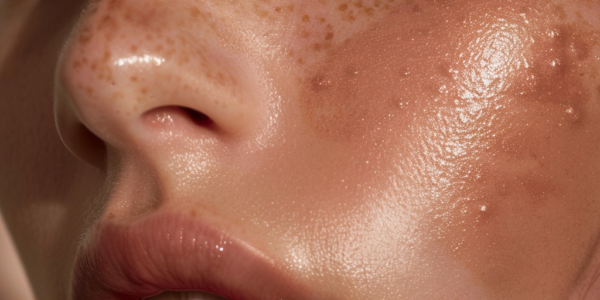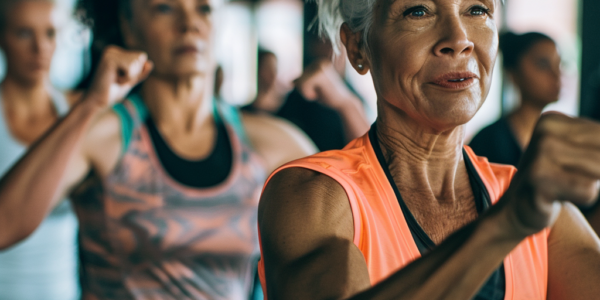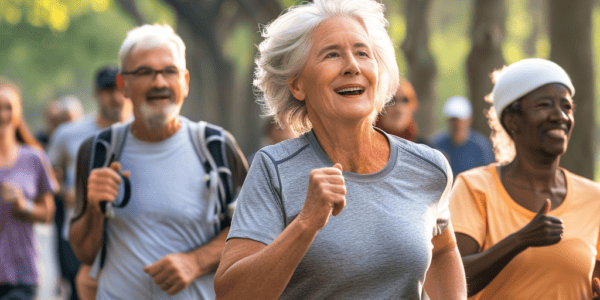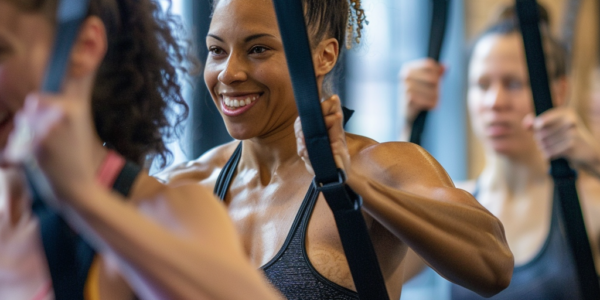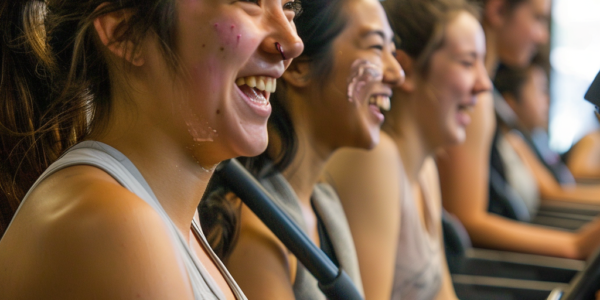Wearing Make-Up During Exercise Can Harm Skin Health, Study Finds
A new study suggests that wearing make-up during exercise can have negative effects on skin health, including changes in pore size and sebum production. Researchers found that wearing foundation during a workout can restrict pores from enlarging and prevent sebum and sweat from being released. While the immediate impact may not be significant for short periods of exercise, the long-term effects are still under investigation.
Study Shows Exercise Reduces Pain and Fatigue in Women with Advanced Breast Cancer
Regular exercise has been found to have a positive impact on reducing pain and fatigue in women with advanced breast cancer, according to a new study. Anouk Hiensch, an assistant professor of epidemiology and health economics, emphasized the significance of offering exercise as part of the treatment regimen for patients with metastatic breast cancer. The study involved 357 patients with advanced breast cancer and revealed significant improvements in patients under the age of 50 and those experiencing higher levels of pain at the beginning of the study. Dr. Michail Ignatiadis hailed the findings as good news for patients with advanced breast cancer, indicating that they can potentially enjoy a better quality of life through regular exercise.
The Debate Over 10,000 Steps: How Many Do We Really Need?
Debate continues on the widely accepted 10,000-step target for daily physical activity. Experts question its universal applicability and propose a balanced approach to physical activity tailored to individual needs and circumstances.
Debunking the 10,000-Step Rule: What Science Says About Walking and Health
Recent studies have called into question the widely promoted 10,000-step guideline for maintaining good health. An article by the BBC’s Griesham Taan delves into the science behind walking and its impact on health, shedding light on the actual daily step count that may be beneficial. The piece emphasizes the need for a more personalized approach to physical activity, rather than adhering strictly to a universal step count, and encourages individuals to engage in regular movement that aligns with their unique needs and abilities.
Strength Training Linked to Longer Life and Lower Heart Disease Risk in Women, Study Finds
A new study has found that women who engage in strength training exercises two to three days a week are more likely to live longer and have a lower risk of death from heart disease. The study, which included 400,000 people, revealed that only 1 in 5 women did regular weight training, but those who did experienced significant benefits, including a 30% reduction in cardiovascular mortality. The research, published in The Journal of the American College of Cardiology, also evaluated the differences in the effects of exercise between men and women, showing that women require less exercise than men to achieve similar gains in longevity.
Exercise Can Boost Creativity and Focus
Discover how a short bout of exercise can boost your creativity and focus, even if you’re not really into it. Experts explain why movement, not fitness, is the key to shaking loose your best ideas and solutions. Learn how aerobic activity can trigger structural changes in the brain that benefit cognition and creativity, and why divergent thinking seems to be most encouraged by physical activity.
Effects of Makeup on Skin During Exercise
A new study in the Journal of Cosmetic Dermatology reports the results of an intervention study on skin changes following the use of makeup while exercising on a treadmill. The study found that exercise causes changes in healing production, boosts metabolism, and indirectly alters the condition of the skin. The pilot study obtained data from a group of 43 college students without a history of chronic illness, and found that moisture levels, elasticity, number of pores, sebum levels, pH, and temperature all showed significant changes based on the use of cosmetic foundation cream during exercise.
Leisure-Time Physical Activity Beneficial for Stroke Prevention, Study Finds
A recent review published in the Journal of Neurology, Neurosurgery & Psychiatry found that leisure-time physical activity (LTPA) can significantly reduce the risk of stroke. The study analyzed prospective cohort studies and identified three to five levels of LTPA that showed a reduction in stroke risk compared to no LTPA. The authors emphasized the importance of promoting physical activity to combat a sedentary lifestyle and encouraged individuals to strive for the best level of LTPA achievable based on their capabilities.
Dr. Oz Shares 10 Simple Habits to Add Years to Your Life Expectancy
Discover 10 simple habits shared by Dr. Oz on The Dr Oz Show that could potentially add years to one’s life expectancy. From the benefits of aspirin during a heart attack to the importance of regular exercise and maintaining social connections, these habits can significantly contribute to a longer and healthier life.
Sedentary Behavior Increases Mortality Risk
Sedentary behavior, such as sitting for long periods, has been shown to increase the risk of mortality, regardless of exercise levels. A new study published in the Journal of the American Heart Association reveals that older women who sat for 11.7 hours or more per day had a 30 percent increased risk of death. Sedentary behavior reduces blood flow and metabolism, leading to negative health effects that cannot be reversed by exercise.

